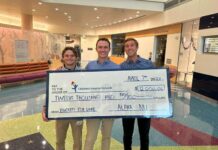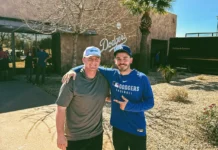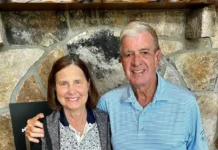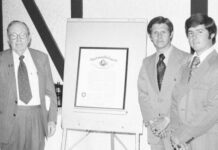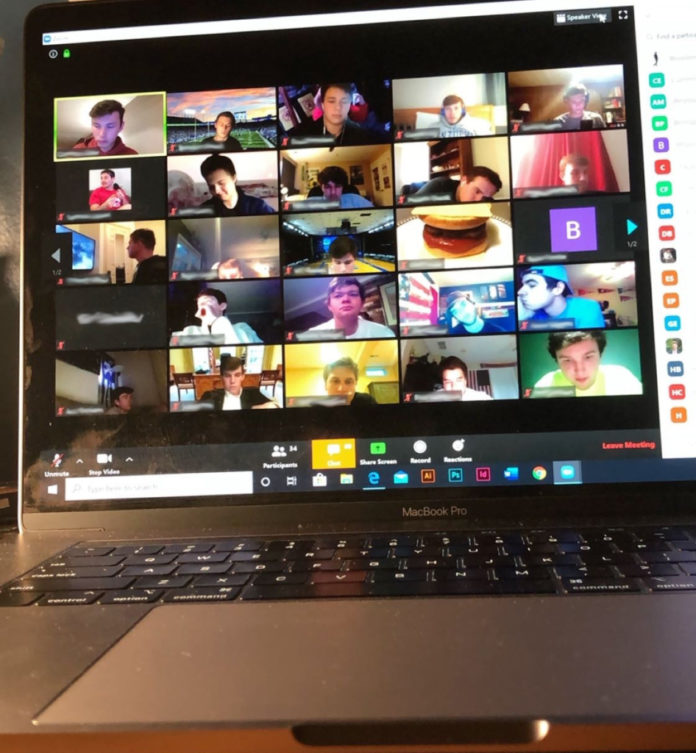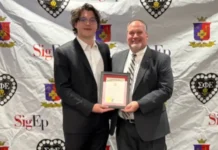This transition to a life of virtual meetings and empty streets has been difficult for many. Organizations like fraternities, which are built upon the social tenets of Brotherhood and bonding, are especially hard-hit. Chi Psi actives are used to living in close proximity to their Brothers and spending time with the entire Alpha multiple times per week. Now, in a flash, that’s all been taken away.
Still, Chi Psis can find ways to connect, educate New Members, elect officers, and more. One excellent example of an Alpha that pivoted smoothly is Alpha Phi Delta at the University of Kentucky. We spoke with #1 Cameron Elder, ’21, about their strategies:
Q: How has Alpha Phi Delta handled the transition from in-person to virtual?
The transition to virtual operations for our Alpha was marked with a lot of uncertainty at the beginning, but by trying to stay as creative as possible, it’s been smooth (for the most part). Once we got official word from the University, our Executive Board and Chairmen got together to brainstorm. We decided the best approach to take was to incorporate as much normalcy as possible, especially at the beginning. We held our first virtual Alpha meeting using Zoom, and were able to relay all of our plans for the rest of the semester to the Alpha and hear from (and see) many brothers for the first time since Spring Break.
Q: How often are you holding meetings?
Originally, we wanted to try to host something as frequently as possible to give guys every opportunity to interact. However, we quickly learned the key was to embrace the non-structured environment of life in quarantine. After trying out some different ideas the first week, we found our footing and have seen pretty strong engagement from all of our members. On a weekly basis, in addition to our Alpha Meetings, we’ve been hosting an Alpha Toast, “Chipsichology” (our optional mental health meetings, adapted from the Alpha Rho Delta “Gentleman’s Club”), occasional member-led P4E’s, and fun Brotherhood activities. Our meetings have helped maintain a form of serious announcements and information spread to our members, as well as outlining our virtual itinerary for the week. We also managed to successfully hold our new Chairmen elections virtually.
Q: Tell us more about how you held elections.
Going through virtual elections was certainly an interesting process. For speeches, we used Zoom and would spotlight the video of the candidate speaking. All other candidates for the position are placed in the waiting room throughout this. Following each candidate’s speech, we open the floor for questions from the Alpha. We had the candidate call on people using the “raise hand” feature on Zoom. After speeches and questions from each candidate, we placed all of them in the waiting room and had an Alpha discussion on the candidates before voting through our university’s BBNvolved web page, allowing members to vote anonymously. Following the voting for each position, I could see the results for each election and announce the winners. Overall, the process was much smoother than expected. I think one of the key elements was reaching out to every candidate prior to the start of elections to make sure they understood the process and answer any questions they had.
Q: How did you transition from old position holders to new ones?
For transitions, we scheduled meetings facilitated by our Secretary with both Brothers to run through the prepared transition manuals we keep consistently updated on our database. Following that, the incoming position holder can ask any questions he has about the position. Lastly, the outgoing position holder gives his personal advice and recommendations for the coming year – what he did that worked, what he could’ve done better, and what he would’ve changed about his term.
Q: What exactly is “Chi Psi-chology?”
Every week, we do a mental health check-up over Zoom. It’s open to everyone, including alumni. There’s no real itinerary, and it doesn’t have to get deep or personal. We usually just share each person’s high’s and low’s and of the week and that branches off into regular conversation. Sometimes, someone is going through a tough time and we can help that person through it. It’s optional, but it’s the most successful virtual event we have.
Q: How are you keeping New Members engaged?
Our New Members had finished the entirety of the Pursuit, but we were unable to host initiation before campus closed. In order to maintain their engagement, we included them in all of our activities. We also introduced an Alumni-New Member Program, which pairs current New Members with alumni through weekly phone calls to connect two groups who would normally not interact on a consistent basis. They do check-ins with each other, build stronger bonds, and discuss their Chi Psi experiences.
Q: How do you balance business with fun in a virtual setting?
The fun stuff has been what made our virtual transition successful. If we just had meetings every Monday and nothing else, people would stop going. We were trying to do too much at the beginning, but pared it down, looked at what other organizations were doing, and developed some creative ideas of our own. For example, we’ve done a roast-like thing where we can submit questions for each Brother. We stole a PowerPoint presentation idea from a skit in the show Impractical Jokers. We’ve organized our own Discord and Minecraft server so Brothers can play video games together anytime. We’ve also started holding “Alpha Toasts” with random Chi Psi guests, where we toast to whatever we’re grateful for at the end. Having to adapt on such short notice and cancel all of our plans was a difficult pill to swallow, but we’ve had great success by staying optimistic and finding new ways to take advantage of the virtual format that we wouldn’t have thought of normally.
Q: How have you managed the transition to virtual classes?
For the longest time, that was the most difficult thing to figure out. We had study rooms and study hours on campus, and each Brother had to log a certain amount of hours based on their previous semester’s GPA, but we just can’t do that system anymore. We replaced it by meeting with everyone individually and got their mid-term grade reports back and talked about what they were struggling with and how their work was transitioning to online. We shared the University’s existing resources for projects and exams to help with each class. We also send out regular reminders about when exams are coming up, reminders to take a break from schoolwork, and ideas of ways to stay motivated.
Q: What is your biggest takeaway from this experience so far?
I’ve learned how to communicate with people when we can’t be in person. But it’s important to remain communicative when you don’t have that real-life option. I think it’ll make me a better communicator in the future, and all our guys have learned that too. We also know now that we don’t have to limit ourselves to what a traditional event looks like – we don’t have to do anything like we used to. If it’s a good idea and you can plan it out, then clearly we can make anything work.
Q: What is the one piece of advice you’d offer to others in this scenario?
The first thing I did was try to minimize distractions when communicating with the Brothers. We usually have a few different group chats (active Brothers only, one with alumni, one for announcements, etc.). But we decided to add everyone to one chat so there were no roadblocks to connecting. We compared this to being on summer or winter break when we have no events. Consolidating the group chats so there was one point of discussion and nobody misses anything was probably the best thing we could have done.
Q: Thanks for your time, Cameron. Any closing thoughts?
Overall, we’ve just tried to accept that the best form of engagement during this time looks different for each individual. There isn’t one tried and true method that works for everyone, so finding a balance between normalcy and unique activities to try to grasp everyone’s attention, even for a little while, has proven successful. The biggest key I’ve learned is that if we’re open and honest with the entire Alpha and keep a positive attitude, the semester doesn’t have to be entirely lost. If we can provide a fun outlet from the difficult times around us, then I believe we’re succeeding as a Brotherhood. The biggest difficulty during this time is simply not being able to physically see each other. I definitely miss being able to see and talk to all of my Brothers in person, but this time has also truly shown me that our Brotherhood can withstand this. I’ve been amazed with how active and willing our members have been in staying connected with one another.

